Filter by
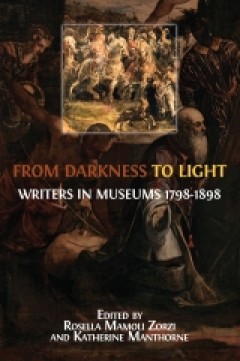
From darkness to light: writers in museums 1798-1898
Written by an array of international experts, these collected essays gather perspectives from a diverse range of cultural sensibilities. From sensitive discussions of Tintoretto’s unique approach to the play of light and darkness as exhibited in the Scuola Grande di San Rocco in Venice, to the development of museum lighting as part of Japanese artistic self-fashioning, via the story of an epi…
- Edition
- -
- ISBN/ISSN
- 9781783745517
- Collation
- xviii, 371 p. : ill. : ind. ; 24 cm
- Series Title
- -
- Call Number
- 729.28 FRO f
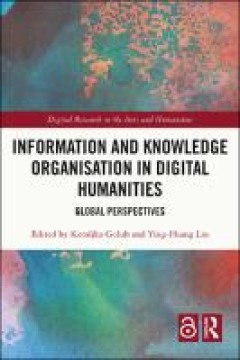
Information and knowledge organisation in digital humanities: global perspect…
Information and Knowledge Organisation explores the role of knowledge organisation in the digital humanities. By focusing on how information is described, represented and organised in both research and practice, this work furthers the transdisciplinary nature of digital humanities. Including contributions from Asia, Australia, Europe, North America and the Middle East, the volume explores the p…
- Edition
- -
- ISBN/ISSN
- 9781003131816
- Collation
- xxiii, 290 p. : ill.
- Series Title
- Digital Research in the Arts and Humanities
- Call Number
- 658.038 GOL i
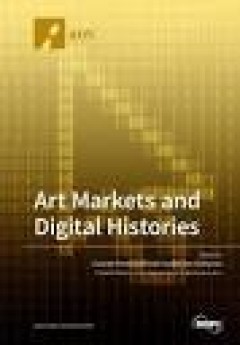
Art markets and digital histories
This Special Issue of Arts investigates the use of digital methods in the study of art markets and their histories. As historical and contemporary data is rapidly becoming more available, and digital technologies are becoming integral to research in the humanities and social sciences, we sought to bring together contributions that reflect on the different strategies that art market scholars emp…
- Edition
- -
- ISBN/ISSN
- 9783039219711
- Collation
- IX, 144 p.
- Series Title
- -
- Call Number
- 700 RAS a
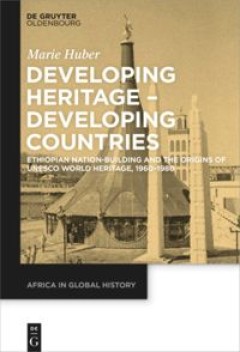
Developing heritage - developing countries : Ethiopian nation-building and th…
The history of development has paid only little attention to cultural projects. This book looks at the development politics that shaped the UNESCO World Heritage programme, with a case study of Ethiopian World Heritage sites from the 1960s to the 1980s. In a large-scale conservation and tourism planning project, selected sites were set up and promoted as images of the Ethiopian nation. This sto…
- Edition
- -
- ISBN/ISSN
- 9783110681017
- Collation
- XII, 204 p.
- Series Title
- Africa in Global History, 1
- Call Number
- 963 HUB d
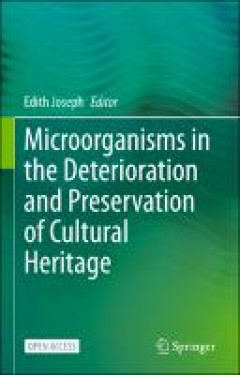
Microorganisms in the deterioration and preservation of cultural heritage
This open access book offers a comprehensive overview of the role and potential of microorganisms in the degradation and preservation of cultural materials (e.g. stone, metals, graphic documents, textiles, paintings, glass, etc.). Microorganisms are a major cause of deterioration in cultural artefacts, both in the case of outdoor monuments and archaeological finds. This book covers the microorg…
- Edition
- -
- ISBN/ISSN
- 9783030694111
- Collation
- XII, 367 p.
- Series Title
- -
- Call Number
- 561.9 MIC m
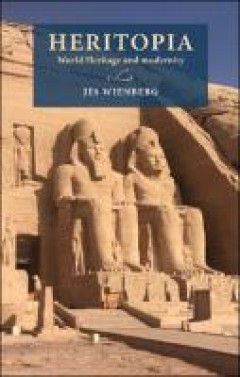
Heritopia : world heritage and modernity
Heritopia explores the multiple meanings of the past in the present, using the famous temples of Abu Simbel and other World Heritage sites as points of departure. It employs three perspectives in its attempt to understand and explain both past and present the truth of knowledge, the beauties of narrative, and ethical demands. Crisis theories are rejected as nostalgic expressions of contemporary…
- Edition
- -
- ISBN/ISSN
- 9789198469943
- Collation
- XI, 323 p.
- Series Title
- -
- Call Number
- 363.69 JES h
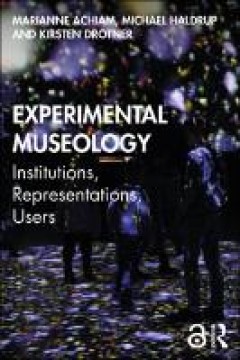
Experimental museology: institutions, representations, users
Experimental Museology scrutinizes innovative endeavours to transform museum interactions with the world. Analysing cutting-edge cases from around the globe, the volume demonstrates how museums can design, apply and assess new modes of audience engagement and participation. Written by an interdisciplinary group of researchers and research-led professionals, the book argues that museum transform…
- Edition
- -
- ISBN/ISSN
- 9780367808433
- Collation
- XV, 214 p.
- Series Title
- -
- Call Number
- 069 EXP e
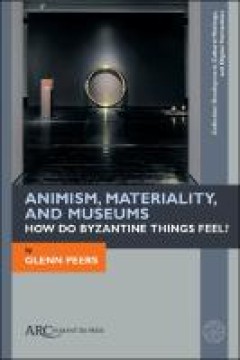
Animism, materiality, and museums: how do Byzantine things feel?
Among our most cherished modern assumptions is our distance from the material world we claim to love or, alternately, to dominate and own. As both devotional tool and art object, the Byzantine icon is rendered complicit in this distancing. According to well-established theological and scholarly explanations, the icon is a window onto the divine: it focuses and directs our minds to a higher unde…
- Edition
- -
- ISBN/ISSN
- 9781942401742
- Collation
- x, 167p.: ill.
- Series Title
- -
- Call Number
- 709.0214 PEE a
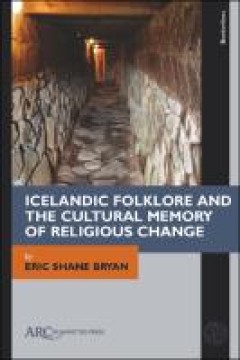
Icelandic folklore and the cultural memory of religious change
This book attempts to understand the origins and development of religious belief in Iceland and greater Scandinavia through the lenses of five carefully selected Icelandic folktales collected in Iceland during the nineteenth century. Each of these five stories has a story of its own: a historical and cultural context, a literary legacy, influences from beliefs of all kinds (orthodox and heterod…
- Edition
- -
- ISBN/ISSN
- 9781641893763
- Collation
- VII, 162 p.
- Series Title
- Borderlines,
- Call Number
- 398 BRY i
Across space and time: papers from the 41st Conference on Computer Applicatio…
This volume presents a selection of the best papers presented at the forty-first annual Conference on Computer Applications and Quantitative Methods in Archaeology. The theme for the conference was "Across Space and Time", and the papers explore a multitude of topics related to that concept, including databases, the semantic Web, geographical information systems, data collection and management,…
- Edition
- -
- ISBN/ISSN
- 9789089647153
- Collation
- 515 pages : illustrations, maps ; 31 cm.
- Series Title
- Computer applications and quantitative methods in archaeology
- Call Number
- 930.1028 ACR a
 Computer Science, Information & General Works
Computer Science, Information & General Works  Philosophy & Psychology
Philosophy & Psychology  Religion
Religion  Social Sciences
Social Sciences  Language
Language  Pure Science
Pure Science  Applied Sciences
Applied Sciences  Art & Recreation
Art & Recreation  Literature
Literature  History & Geography
History & Geography